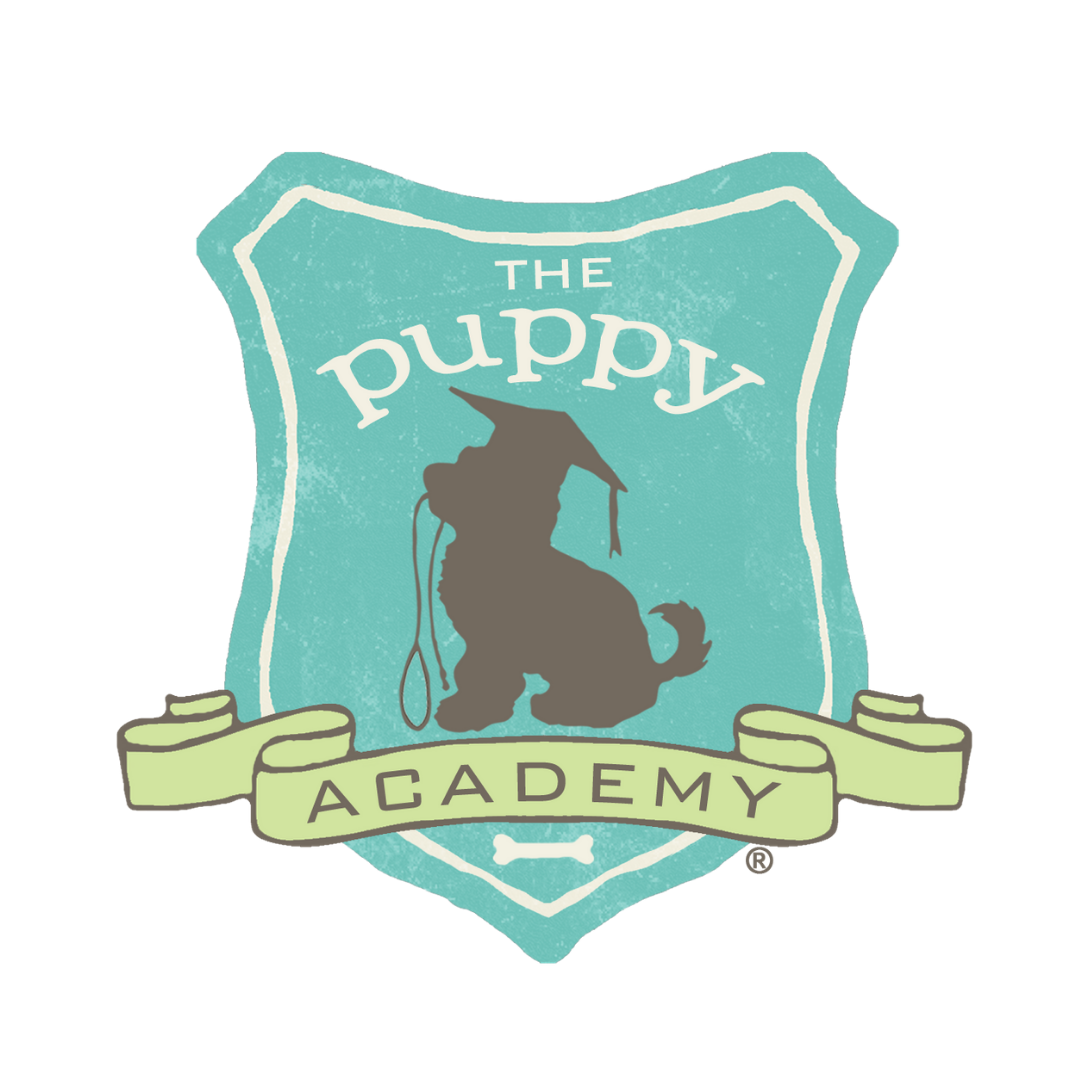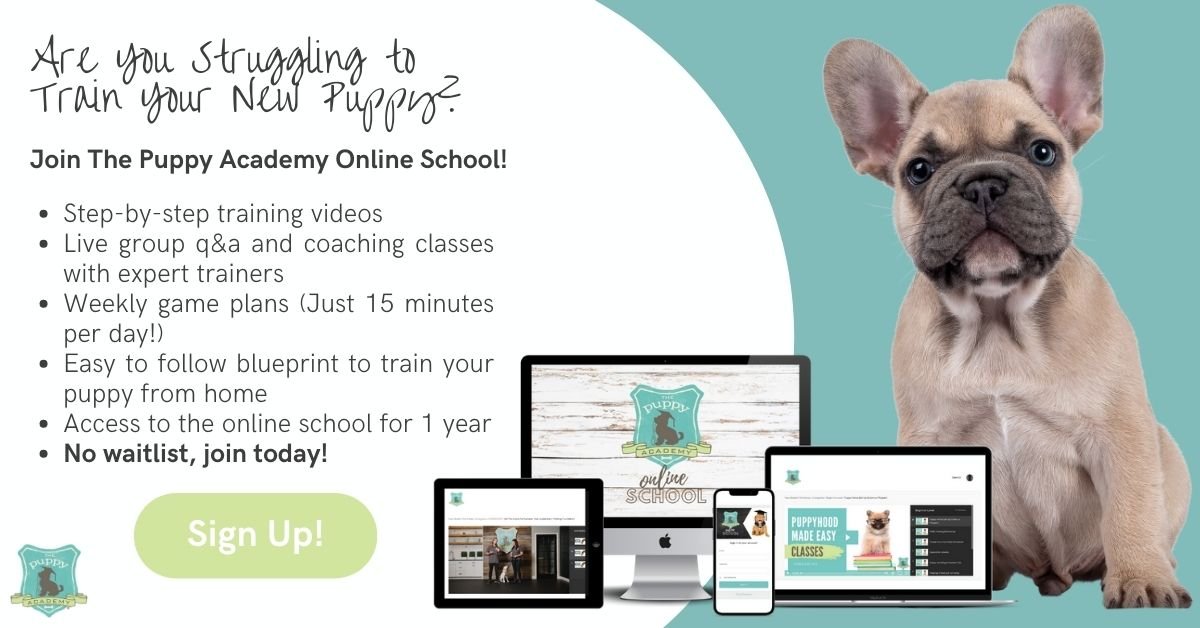It’s a super exciting time when you bring home a new puppy, and like many new puppy parents in your shoes, right now one of your biggest questions may be "How do I bond with my pup? Here are eight simple techniques that you can do with your puppy to help grow their trust and build a lasting bond with you!
What are the Benefits of Bonding with Your Puppy?
One of the most common reasons people bring a pup into their life is for companionship! The pup-human relationship is certainly a special one. It’s a fun experience to be able to teach your new puppy, play with them, and experience the world with them. And the faster you can establish a bond with your puppy, the easier it can be to communicate with them, raise them, and enjoy life together!
What to Expect from Your Puppy
Before we dive into these eight tips, understand that a young puppy is still learning!
During their first few months, your puppy will go through growth spurts and build up their mental library of positive associations with the environment and people around them. Be patient with your puppy throughout the process of puppy training, playing, getting them to listen, and just day-to-day interactions with you!
1. Establish Communication with Your Puppy
First things first, knowing how to “talk” with your puppy will really help you establish a strong bond! Puppies don’t understand human conversation, but they can be taught to understand certain words for obedience commands. And they do cue into our emotions, body language, and energy all the time!
In this situation, our tone of voice plays a big part. An excited tone, for example, can raise your puppy’s energy and get them motivated to do something you want them to do, if they’re more low-key. On the flip side, an excited tone can amp up a pup who already has high energy even more. Speaking in a neutral and steady voice can help calm down an excited pup, and help soothe more anxious pups.
Start your puppy off learning the basics of communication by introducing them to food luring, establishing eye contact, learning to recognize their name, and coming to you when called. Learn more about this routine to help you communicate with your puppy and build your bond in our blog “Puppy Training 101: Starting Your Puppy off with the Basics!”
2. Give Your Puppy Boundaries
Puppies need boundaries to help them understand the rules of the home. Having good boundaries in place with your puppy helps to strengthen your bond and relationship with them as their leader, and someone they continue to look to for direction!
Without boundaries and letting your puppy freely roam the house, hang out on furniture when they choose and generally do as they please, can create bad behaviors and these pups are more likely to get into trouble! Unwanted chewing and potty accidents are two of the most common puppyhood problems new owners face with a free-roaming pup!
While they are still learning, you can start to establish boundaries by using baby gates or a playpen to keep your puppy out of certain areas of the home, or in a designated spot where you can easily keep an eye on them!
3. Create a Daily Puppy Schedule
When a young puppy comes to a new home for the first time, they are trying to understand and adapt to their new environment and family. Incorporating a daily schedule instantly adds structure to your pup’s life!
Routines are the fastest way to get your puppy on track. They are important for potty training, promoting good eating habits, establishing overall good behavior, and encouraging their confidence and bond with you! When your puppy is on a schedule and knows what's coming up next, they can settle more easily knowing that all their needs are being met throughout the day."
Creating a daily schedule for your puppy mainly consists of eating, playtime and puppy training, potty breaks, and nap times! You should try to match up to your normal schedule as much as possible so your puppy really gets the hang of being a member of the family!
4. Make It a Game
Nothing helps grow your bond with your puppy more than some playtime!
There are puppies that want to play the second they step inside your home, while others need some time to get adjusted to their new environment. So keeping their favorite food or treats handy can help you coax them into playing with you! There are a few games that not only provide awesome quality time but also serve as puppy training!
A few of our favorite interactive games that will help grow your bond are “Hide and Seek”, “Tug” and “Fetch”!
With “Hide and Seek” you can start teaching your puppy this game by hiding in plain sight at first, like ducking behind a couch or door with your puppy watching and then calling their name to you and rewarding them with their food or a treat when they come to you. This helps strengthen the habit of always coming to you when called, and wanting to come to you when you call them! As they get better, you can start to get more creative with your hiding places and make it more challenging and fun for your puppy!
Tug is a great activity to teach your puppy how to listen to you and turn play on and off. It’s also fun to feel their energy on the other end go the tug toy and bond with them that way! For tips on teaching tug, check out our blog on “Puppyhood Made Easy for New Owners: How to Play with Your Puppy Pt 1”!
Fetch is another awesome constructive game to play to teach your pup to keep coming back to you, while reinforcing your communication together. Follow our guidelines for good Fetch manners on “Puppyhood Made Easy for New Owners: How to Play with Your Puppy Pt 2!”
Each of these games really stimulates a puppy’s brain while helping them establish that you’re pretty fun to hang out with! These types of quality play sessions will have your puppy looking forward to the next time they get to spend more quality time with you!
5. Exercise Your Puppy
A great way to get in extra quality time and much-needed exercise for your pup is to go for walks and enjoy some outdoor playtime!
Just like their human parents, puppies and dogs benefit from regular exercise both physically and mentally. Boredom can lead to disruptive behaviors like unwanted barking, chewing, digging, and general puppy antics. And leading a mainly sedentary life is a huge contributor to obesity, diabetes, weak bones and joints, difficulty breathing, and other canine diseases.
Exercise has plenty of benefits but everything should be in moderation! Puppies certainly can have high energy but too much exercise can be damaging to their developing joints and build up their stamina to require more and more physical activity in the future. As you begin to plan out your puppy’s daily schedule of activities, consult with your puppy’s veterinarian on what safe activities and movements your puppy can participate in and do. For more information on proper exercise for your puppy, read our blog “Canine Fitness Awareness: How to Keep Your Puppy Active & Healthy as They Grow!”
The outside world can be a place of tons of excitement and over-stimulation for young pups, so when planning out your puppy schedule, start slowly getting your pup used to outdoor walks by first practicing in your yard or driveway, and gradually extend the distance to around your neighborhood as your pup’s walking and focus improves!
By teaching your puppy Heel and adding in obedience command sessions during your walks, you're teaching your puppy to focus on you and always look to you for the next thing they should be doing, which quickly builds your bond together!
6. Start Puppy Training
Establishing a language to speak with your puppy is a key ingredient to forming a bond with your puppy. An easy way to do this is through obedience command training!
Being able to ask your puppy to do something and have them understand and respond to it is one of the best feelings that will have you feeling even closer! Plus, puppies love to work! By utilizing obedience command routines, not only will you be able to communicate better with each other, but your pup will feel more fulfilled by the mental and physical exercise they’ll get from it.
If you’re not sure how or where to start, our Online Puppy School helps new puppy parents learn how to communicate with their puppy through simple commands and hand signals, with routines that not only build your pup’s skill level but have you working as a team! In these classes, we’ll show you step-by-step exactly what to do to help your pup grow up to be an amazing companion dog that you can take anywhere and fully enjoy life with!
For more information and to get started today, check out The Puppy Academy Online School!
7. Give Your Puppy Their Own Space!
New sights, smells, sounds, and faces -- all of the experiences of coming into a new home can be a bit overwhelming at first for a young puppy! As we create this incredible bond with our new puppies, it's also important to remember to give them their own space and alone time away from us, so they can feel comfortable and safe, but also don't develop separation anxiety!
Setting up a crate or playpen for your puppy to relax in, away from the hustle and bustle of the household and family members, is a great way to do this. Your pup will still feel comforted and safe in there and be able to develop some independence, so they grow into a well-adjusted adult dog!
8. Build Trust Through Cuddling and Handling!
Nothing beats a cozy cuddle session! But, incorporating some basic puppy handling when you do this can help solidify your bond even more!
This includes getting your puppy used to having all different parts of their body touched, including the ears, mouth, nose, legs, paws, belly, tail, and backside.
The best time to do this is when they’re sleepy. With a few pieces of their food in one hand, slowly and gently start touching these areas with the other, and reward your pup when they let you! If you’re up for it, you can also add light grooming practices like brushing their fur or cleaning their eyes!
You can also give your puppy massages to help soothe them, which can be more relaxing for them than petting, which can cause stimulation and excitement.
If you work these sessions into your puppy’s daily schedule each evening, it helps them learn that a certain time of the day is meant for settling down.
Do you plan to welcome a new puppy into your family soon and want more advice on building a bond with them? Join our live Ask a Puppy Trainer q&a session each Wednesday at 1 pm PT on Instagram! Plus, sign up for the Very Important Puppy mailing list to receive puppy training and raising tips from the experts every week!
Check out these blogs related to puppy training and more!
Canine Fitness Awareness: How to Keep Your Puppy Active & Healthy as They Grow!




